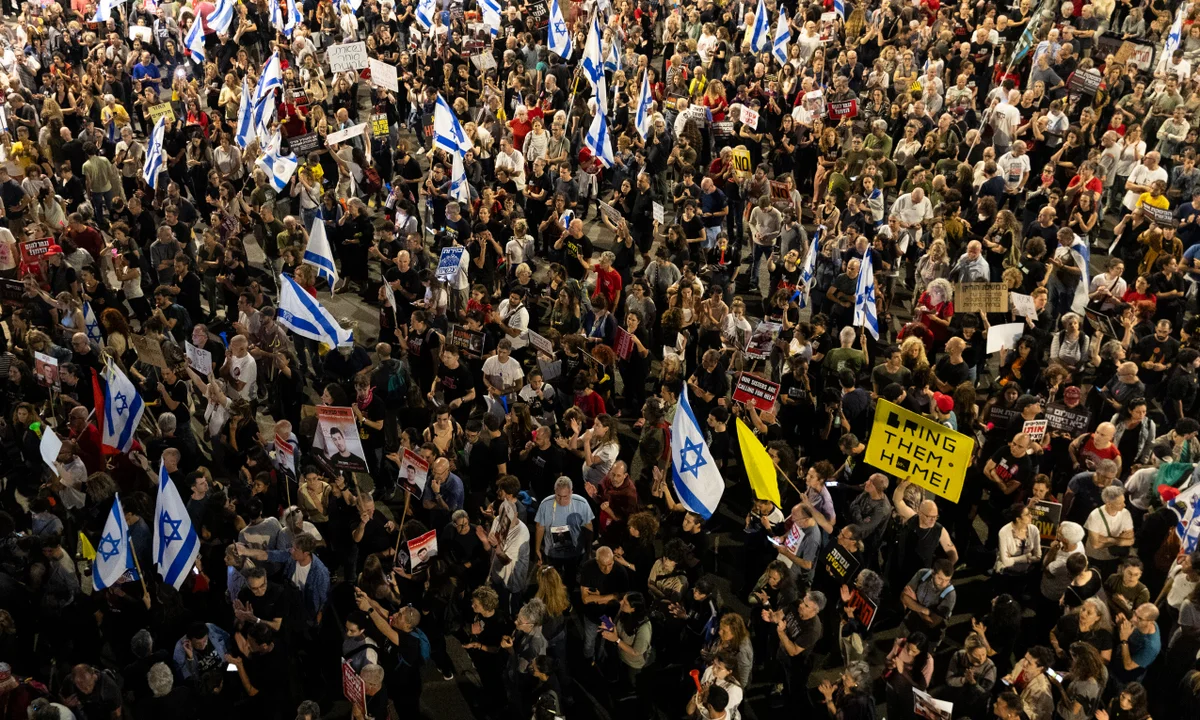Protests staged by tens of thousands of Israelis in Tel Aviv called for an immediate ceasefire after six more captives executed in the Gaza Strip were found. The escalations of the uprising, which included clashes with state security on Sunday night, signaled one of the biggest anti-government protests in nearly 11 months of the Gaza war.
This was evident in their demonstrations where they chanted ‘Now! Now!’ demanding Prime Minister Benjamin Netanyahu to negotiate for the captives held by Hamas to be released as they demanded a cease of the attack. People protested in Tel Aviv, stopping traffic and in front of Netanyahu’s office in West Jerusalem, ratcheting up the agitation against the government.
See, for instance, Hostages and Missing Families Forum– an organisation composed of the families of hostages held in Gaza – accused Netanyahu of being unwilling to negotiate a ceasefire as being responsible for the deaths of six of the hostages. The forum stated that these people who remained in captivity of Hamas for nearly 11 months and had to endure torture and starvation were killed on the government’s failure to negotiate for their release.
Carmel Gat Dickmann, one of the relatives of the deceased captives, urged fellow Israelis to intensify their demonstrations. He encouraged the citizens to “close the country as everybody is doing now,” saying that the remaining hostages could still be rescued.
Gideon Levy of Haaretz claimed that Netanyahu’s right-wing coalition, especially the factions against any concessions to Hamas, is more concerned with its political survival than the lives of the hostages. He pointed out that within his party, Likud, the prime minister has considerable power because there is no significant opposition from within the government. Levy downplayed what he said was the relatively limited ability to assess the full impact of the protest movement but noted that a potentially more significant threat might come from the streets.
The largest labour organisation in Israel, Histadrut, called a general strike to compel the government to accept the cease-fire. The strike, endorsed by major players in the Israeli economy, such as banking and healthcare, has the potential to paralyse large areas of the economy. The strike will affect the Ben Gurion Airport, the central country’s air transport hub and is expected to be shut down starting Monday at 8 a.m.
Speaking to ‘Channel 2’, Histadrut chief Arnon Bar-David said: “A deal is more important than anything else. ”He pointed to the mounting public pressure due to the government’s inability to free the hostages in Israel’s strained economic sector. The Manufacturers Association of Israel also endorsed the strike, which claimed that the government had neglected its ‘bible duty’ of rescuing the captives.
The current opposition leader in Israel, former Prime Minister Yair Lapid, added another voice in support of the strike, thus increasing pressure on Netanyahu’s administration. Nonetheless, Finance Minister Bezalel Smotrich called for legal action to prevent the strike, claiming that such action in wartime is reckless and chaotic for the financial system.
The long-simmering negotiations with Israel and Hamas, which have been going on for months, have been an issue for critique. Most of the Israelis lay the blame for the failure to deliver the ceasefire and the release of the captives on Netanyahu. This war in Gaza, where the lives of thousands of people have been lost, aims to keep the public enraged, thus increasing the need for a cease-fire.















